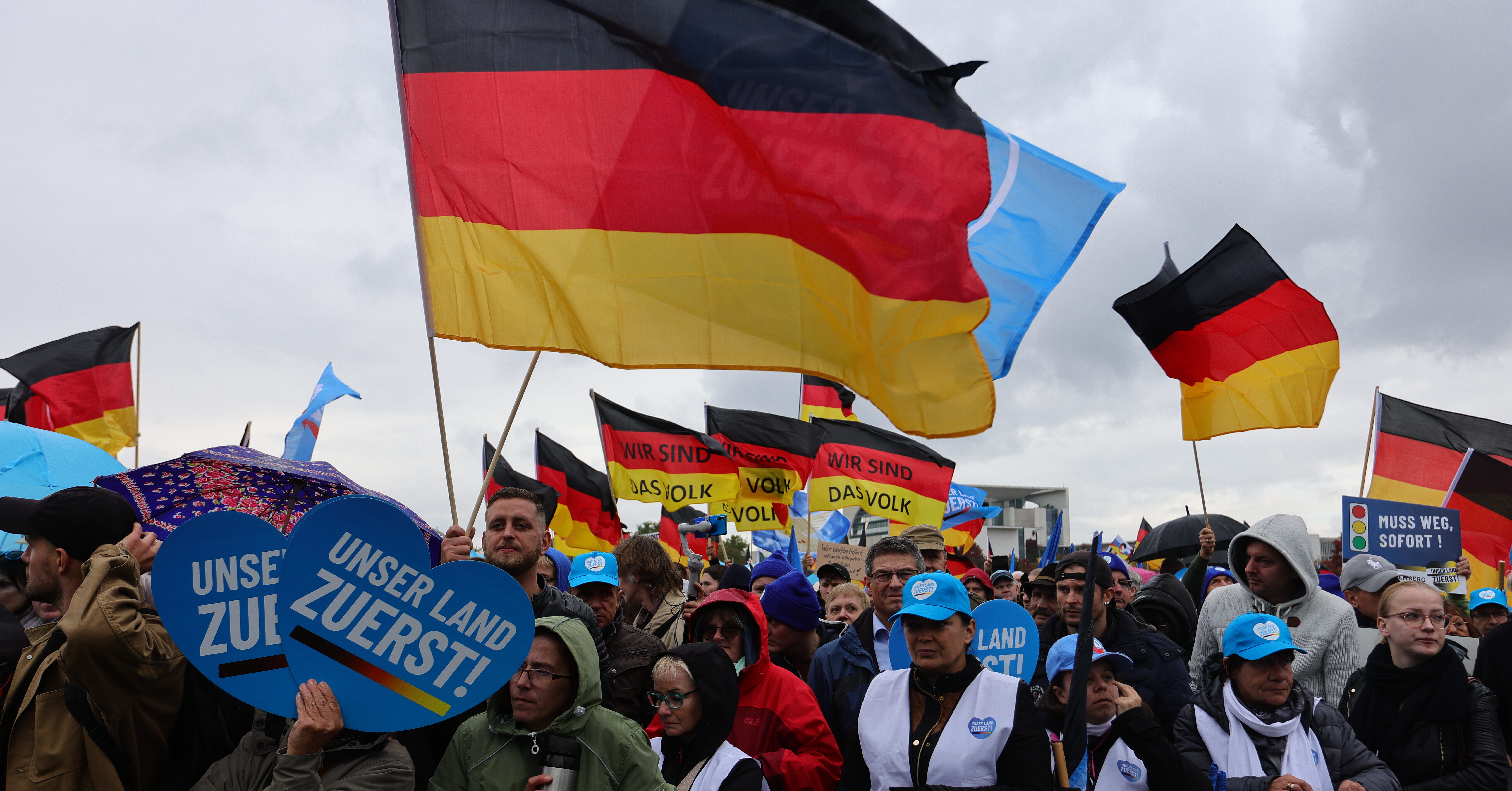Is Germany entering Weimar conditions and becoming increasingly ungovernable? At first glance, an observer might come to such a conclusion. During the interwar period, there were more than 40 different parties represented at some point in the Reichstag; now, contemporary Germany is seeing a similar rise in party registrations. While almost all of them have a populist bent, the cohort boasts representation from both the Left and the Right and even a party that attempts to appeal especially to Germans with a Muslim-migrant background.
On the Right it is the former head of Germany’s domestic intelligence service, Hans-Georg Maaßen, who is making waves. Maaßen, a longtime member of Angela Merkel’s Christian Democrats (CDU), lost his job in 2018 after he appeared to downplay Right-wing violence in the eastern city of Chemnitz. Once isolated within the CDU, he announced alongside the so-called WerteUnion (Values Union) that he would found a new, conservative-liberal party to compete in German elections.
The WerteUnion was originally a splinter group within the CDU that opposed the Leftward shift under Chancellor Merkel, but has since become a political movement in its own right. One of its main features is to not only be a potential alternative to the AfD (itself a self-styled alternative to the established parties), but also a willingness to cooperate with them, thereby ignoring the CDU-decreed “firewall” vis-à-vis the AfD.
But it is not only the conservative party that is splintering. Die Linke (The Left) last year lost its most prominent member, Sahra Wagenknecht, to a new party — named after her — which is hoping to capitalise on the Left-wing firebrand’s popularity. Wagenknecht is appealing to East Germans especially, for she combines nostalgia for the German Democratic Republic and the welfare state with calls for a more restrictive migration policy and an end to arms deliveries for Ukraine.
In fact, if one listens to her speeches it is tricky to find significant differences with the AfD. Both Wagenknecht and Maaßen want to appear as softer versions of the Alternative for Germany but fish in the same voter pool — one that is growing due to widespread dissatisfaction with the current traffic-light coalition of Social Democrats, Greens, and the Liberal Party. Germany does not have any federal elections – with the exception of votes to the EU Parliament in the summer – but the two new parties do have a realistic chance of gaining seats in three state elections this autumn.
What’s more, another unlikely actor has entered the fray: a new party called Alliance for Diversity and Renewal was founded a few days ago in the hope of gaining votes in the upcoming EU elections. The party, run by individuals with close ties to supporters of Turkey’s President Recep Tayyip Erdogan and various Islamist movements, is appealing to the 3.2 million Germans with a Turkish background. It has not yet been included in any polls, but there is a possibility that the next EU parliament will have members who openly sympathise with Islamist ideology, while officially representing Germany in Brussels.
None of these parties, it has to be said, are openly agitating against the democratic system in Germany, so the comparison with the Weimar Republic has to be taken with a grain of salt. Back then, communists and national socialists were running on platforms calling for the end of democracy, something that (thankfully) is absent from the current debate.
Nonetheless, German democracy is not a bouquet of flowers with everything nicely arranged, but instead a workshop where there is hammering, welding, and yelling. And from time to time, someone has to pick up the broom and clean it all out. Germans seem to be desperate to find that someone, as this flurry of new parties demonstrates.











Join the discussion
Join like minded readers that support our journalism by becoming a paid subscriber
To join the discussion in the comments, become a paid subscriber.
Join like minded readers that support our journalism, read unlimited articles and enjoy other subscriber-only benefits.
Subscribe